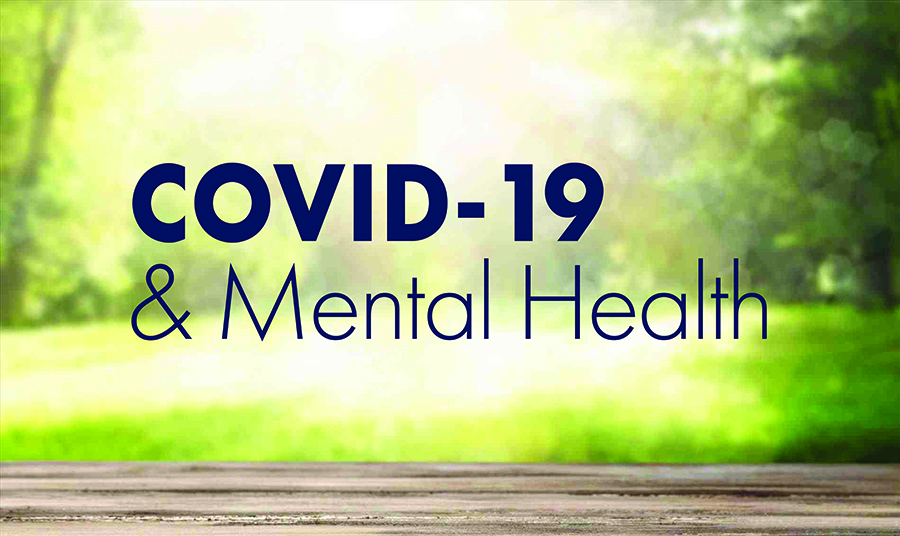The outbreak of coronavirus (COVID-19) may be stressful for people and communities. Fear and anxiety about a disease can be overwhelming and cause strong emotions in adults and children.Everyone reacts differently to stressful situations. The emotional impact of an emergency on a person can depend on their experiences, social and economic circumstances and the availability of local resources. People can become more distressed if they see repeated images or hear repeated reports about the outbreak in the media.
People who may respond more strongly to the stress of a crisis include:
People who have preexisting mental health conditions including substance use
People who are helping with the response to COVID-19, like doctors, nurses, health care providers and first responders
Children
Reactions during an infectious disease outbreak can include:
Fear and worry about your own health status and that of your loved ones who may have been exposed to COVID-19
Changes in sleep or eating patterns
Difficulty sleeping or concentrating
Worsening of chronic health problems
Increased use of alcohol, tobacco, or other drugs
FOR ADULTS
People with preexisting mental health conditions should continue with their treatment plans during an emergency and monitor for any new symptoms. Call New Vista’s 24-Hour Helpline 1.800.928.8000 if stress reactions interfere with your daily activities for several days in a row.
Here are 5 things you can do to support yourself:
Avoid excessive exposure to media coverage of COVID-19.
Take care of your body. Take deep breaths, stretch or meditate. Try to eat healthy, well-balanced meals, exercise regularly, get plenty of sleep and avoid alcohol and drugs.
Make time to unwind and remind yourself that strong feelings will fade. Take breaks from watching, reading or listening to news stories. It can be upsetting to hear about the crisis and see images repeatedly. Try to do some other activities you enjoy to return to your normal life.
Connect with others. Share your concerns and how you are feeling with a friend or family member. Maintain healthy relationships.
Maintain a sense of hope and positive thinking. Learn more about taking care of your emotional health.
Share the facts about COVID-19 and the actual risk to others. People who have returned from areas of ongoing spread more than 14 days ago and do not have symptoms of COVID-19 do not put others at risk. Sharing accurate information can help calm fears in others and allow you to connect with them.
What are quarantine and social distancing?
Quarantine separates and restricts the movement of people who were exposed to a contagious disease to see if they become sick.
Social distancing means remaining out of places where people meet or gather, avoiding public transportation and maintaining distance, approximately 6 feet, from others.
FOR PARENTS
Children react, in part, on what they see from the adults around them. When parents and caregivers deal with the COVID-19 calmly and confidently, they can provide the best support for their children. Parents can be more reassuring to others around them, especially children if they are better prepared. Call New Vista’s 24-Hour Helpline 1.800.928.8000 if you have questions or concerns about your child’s mental health.
Not all children respond to stress in the same way. Some common changes to watch for in children are:
Excessive crying and irritation
Returning to behaviors they have outgrown
Excessive worry or sadness
Unhealthy eating or sleeping habits
Irritability and acting-out behaviors
Difficulty with attention and concentration
Avoidance of activities enjoyed in the past
Unexplained headaches or body pain
Use of alcohol, tobacco or other drugs
There are 5 things you can do to support your child:
Take time to talk with your child about the COVID-19 outbreak. Answer questions and share facts about COVID-19 in a way that your child can understand.
Reassure your child that they are safe. Let them know it is ok if they feel upset. Share with them how you deal with your own stress so that they can learn how to cope from you.
Limit your child’s exposure to media coverage of the event. Children may misinterpret what they hear and can be frightened about something they do not understand.
Help your child to have a sense of structure. Once it is safe to return to school or childcare, help them return to their regular activity.
Be a role model; take breaks, get plenty of sleep, exercise, and eat well. Connect with your friends and family members and rely on your social support system. Learn more about helping children cope.
RESOURCES
The information on the page has been adapted from the Center for Disease Control website. Here are links to more resources.
For Everyone
Coping with a Disaster or Traumatic Event
For Communities
Coping with stress during an infectious disease outbreak
Taking Care of Your Behavioral Health during an Infectious Disease Outbreak
For Families and Children
Helping Children Cope with Emergencies
Coping After a Disaster – A Ready Wrigley activity book for children age 3-10

